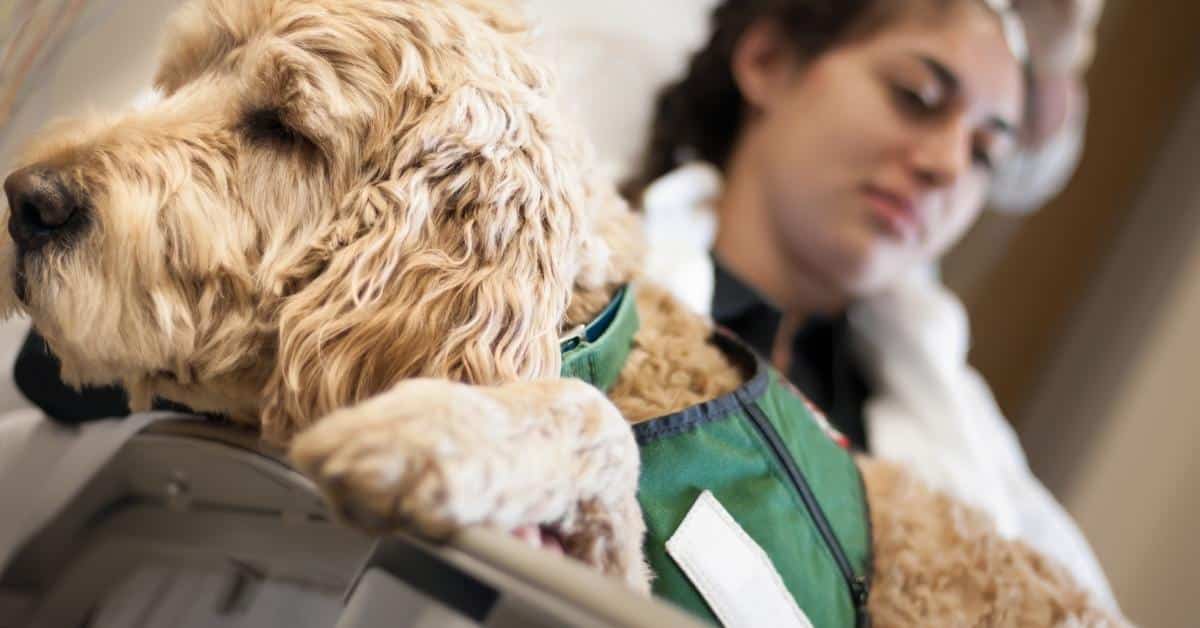Pet Therapy
Pet therapy, also called animal therapy or animal-assisted therapy, refer to the use of animals in treatment. Pet therapy is a complementary medicine component, aiming to help a patient’s social, emotional functioning, or cognition. These are vital for people with autism, dementia, and many other mental health disorders. Pet therapy is typically held in the presence of a dog or a cat. Nevertheless, fish, guinea pigs, horses, and other animals are also chosen sometimes.
In canine-assisted therapy, dogs, which are trained to be obedient, welcoming, and friendly. They comfort the person by creating a body contact, promoting the person to attend in an interaction which is expected to benefit motor skills and enabling relationship with others.
Mirror neuron activity and the smelling ability in dogs which is disease-perceptive may also play important roles in dogs interacting with people. I almost can hear you asking, ‘What is a mirror neuron?’ The mirror neurons activate while observing others’ actions. They fire in the same way when we do those actions ourselves. They are what makes your salivary glands produce saliva when you see someone licking a lemon, even merely imagining it, or feel frightened while watching a horror movie. Pet therapy is implied to target mirror neuron systems which are aiming to improve social and cognitive skills.

Pet Therapy and Autism
Autism Spectrum Disorder (ASD) is a neurodevelopmental condition that encompasses a broad range of afflictions characterised as deficits in communicating and interacting with other people, skills in developing, maintaining, and comprehending relationships; having repeated behaviour patterns, activities, interests. People with autism may take long to process information, might find it hard to under understand people’s thoughts and emotions. However, it should be remembered that signs vary from person to person. Autism is wide a spectrum. Some people with ASD need little or no support.
The causes of autism are not entirely understood. However, it is certainly not caused by bad parenting, vaccines, or diet. The general agreement in the medical community is, genetic factors are predisposing ASD that result in developmental changes in the brain especially associated with neural connectivity, by that means presenting the patterns of behaviour and social impairment mentioned above.
As the mechanism of ASD is not fully known, there is a lack of established treatments. Therefore, a number of alternative therapies have been developed to improve social deficits. One of the interventions is pet therapy, attracting a lot of interest lately. Researchers have been recently studying to test its efficacy. There is a significant number of papers about pet therapy and it is suggested that they show great potential. According to the latest literature reviews, the presence of animals may help decrease stress and accumulate social behaviours in people with ASD. Along with that, it is clear that a bigger sample size and control groups will provide more substantial information about autism
Pet Therapy for Dementia Patients
Dementia is a disorder that causes a compelling physical, emotional, social, and financial burden on patients, their caregivers, and society. It is characterised by a decline in cognition involving one or more cognitive domains such as learning and memory, language, executive function, complex attention, social cognition.
There is no cure for dementia, nor there is a clearly effective way of treatment that has been shown in the literature. The treatment is mostly focused on limiting the effect of symptoms. Recently, there has been a number of researches about the efficacy of pet therapy for dementia. There is no clear evidence as further and bigger investigations should be obtained. Still, improvement has been detected in verbal communication function and attentiveness.

Pet Therapy Elderly Mental Health
In order to evaluate the benefits of pet therapy on mental health problems, cognitive function, mood, sleep regularity, and self-determined quality of life. A controlled clinical trial published in Japanese Psychogeriatric Society claiming pet therapy is efficient in improving depressive symptoms and cognitive function in residents of long-term care facilities with mental illness. The article was given forth back in 2011, leading to a vast number of studies all around the globe.
With aging, older adults are at risk of a decline in mental health as they experience significant life stressors that are specific to later life. Some researchers indicate that animal presence might benefit society-dwelling older adults by providing companionship, giving a sense of purpose and meaning, reducing loneliness, and improving socialisation.
Pet Therapy Services in Sydney, NSW
Get in contact with us today to get pet therapy with dogs, cats or whichever animal is best for you. Call us on 02 9232 7055 to reach our NDIS support providers & approved carers for your pet therapy plan.



